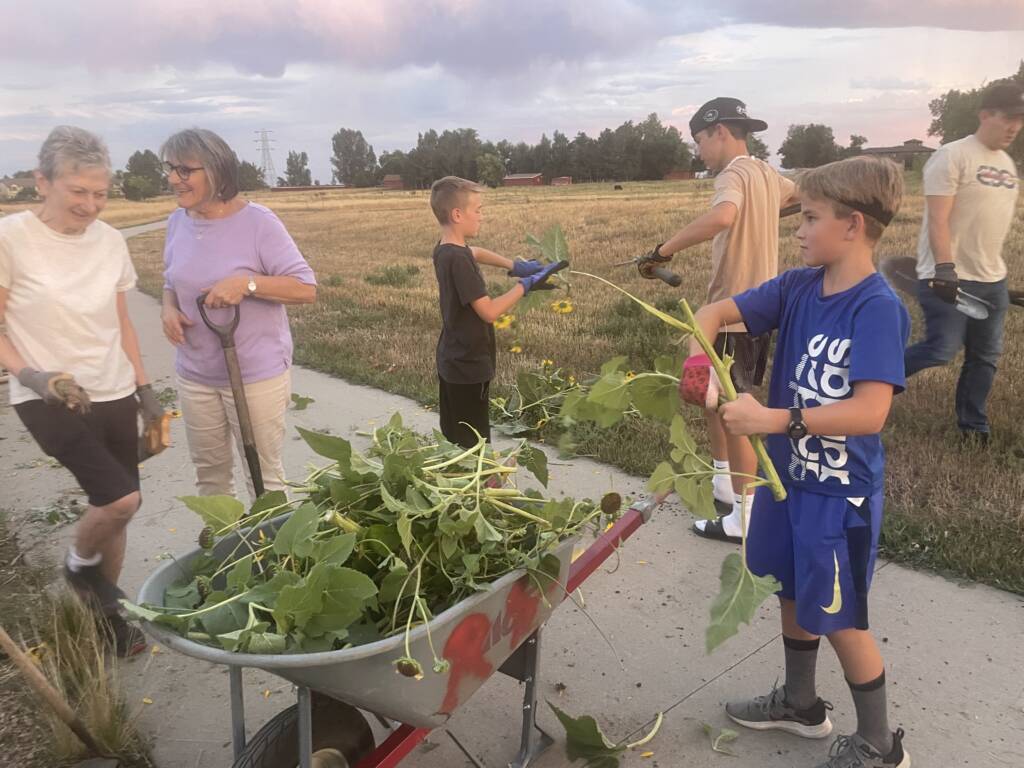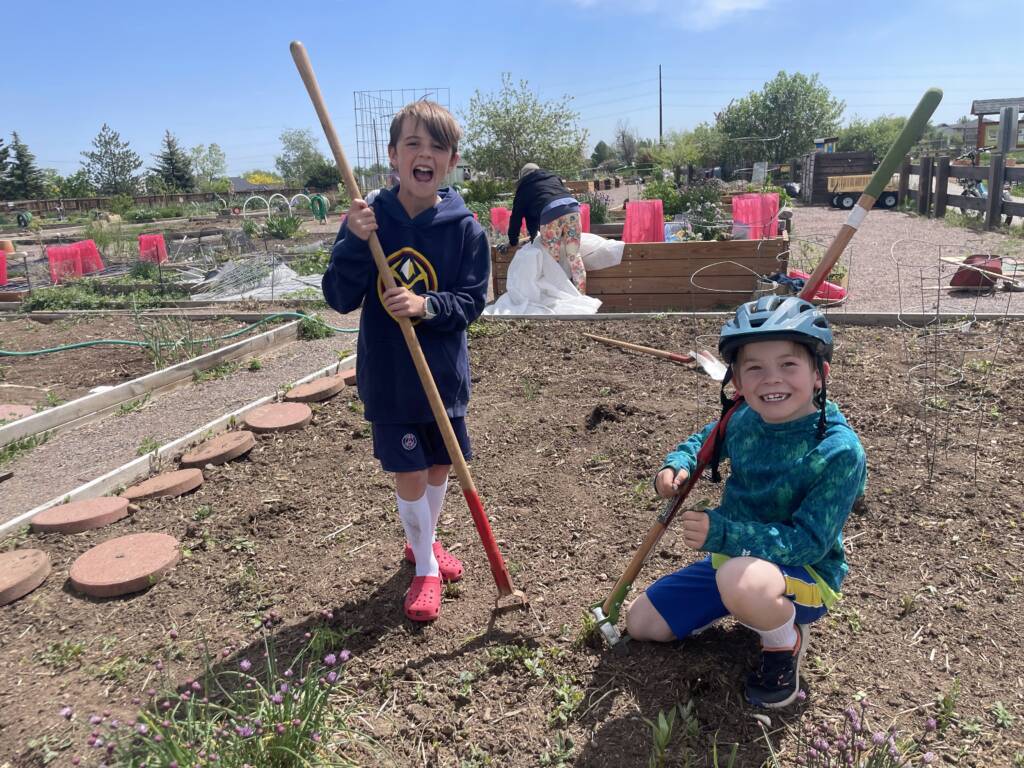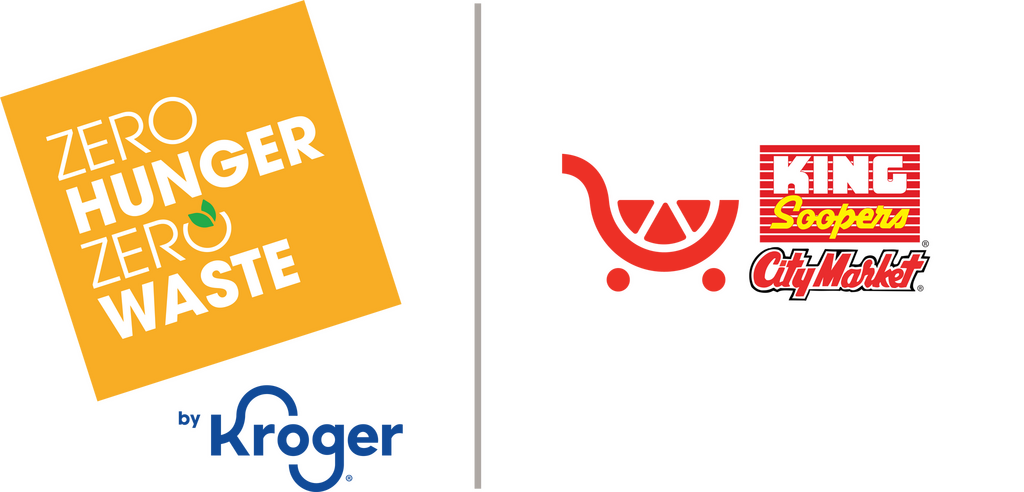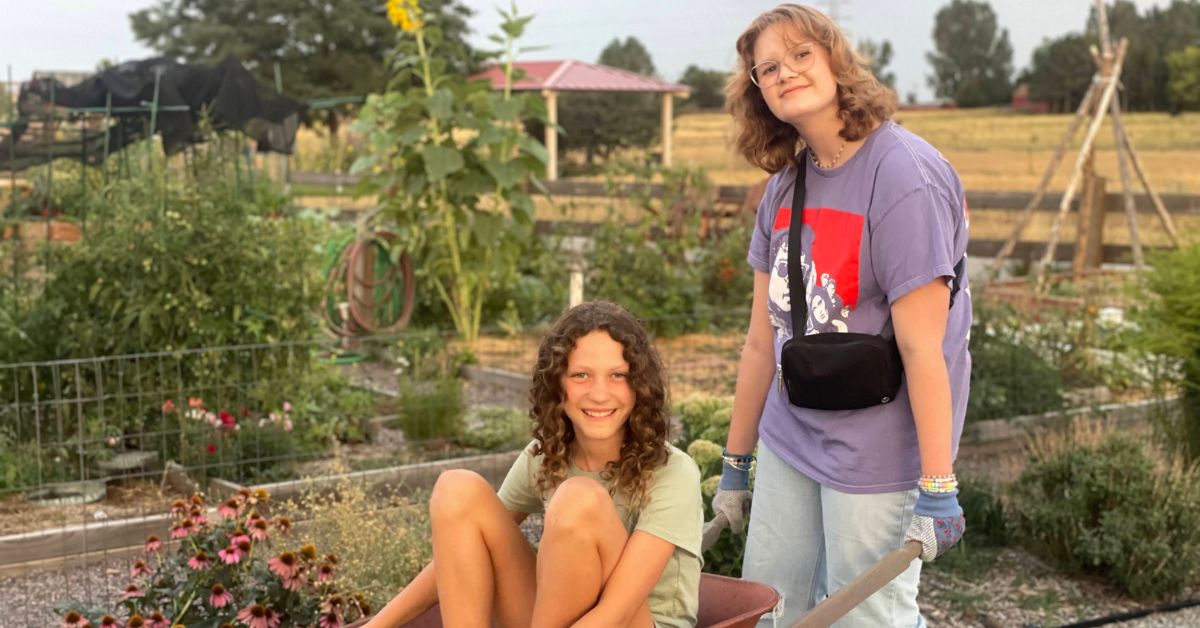By promoting sustainable agriculture and providing educational and social opportunities, Rose Roots Community Garden is helping community members of all ages connect with one another and engage with their local environment. King Soopers has supported this organization through its Fight Hunger bag program.
Tell us about Rose Roots Community Garden.
Twelve years ago, Gina Schley and John Chism saw an opportunity to preserve open space and promote community agriculture when the city of Arvada was making plans for the approximately 1.5 acres east of Alkire in Northwest Arvada. They organized a community group of garden neighbors, who partnered with the city to secure a grant to found Rose Roots Community Garden within the Hills at Standley Lake City Park.
Community volunteers led by Gary Williams and Jim Richards, founding gardeners and volunteer operations leads, built the plot borders, laid weed cloth, and spread gravel to cover the community pathways. The city added fencing, two shade pavilions, and a pathway for the community to enjoy walking by the garden. A community supported agriculture (CSA) space was designated just south of the garden, and a barn was built. Later, the Boy Scouts donated a small barn, and a grant was secured from Wells Fargo to build a larger barn on the west side of the garden so that produce donations could be organized for pick-up and delivery. A pollinator garden was developed at the garden entrance, which has become a favorite spot for the community to visit and study the labeled drought-resistant perennial species featured in the Annual Arvada Pollinator Garden Tour for several years.

Presently, we continue to build a few new plots each year to meet the demand from community members, with 110 plots available for rent each season. The city designated Denver Urban Gardens (DUG) as the concierge manager to offer gardener resources and manage plot fees and liability insurance.
As a grassroots organization, we welcome all community members. Our mission is to restore bonds between people, food, and nature. We want to work together to create a better local food system for future generations. We live by this mission. We’re very proud of who we are as a garden. As designated in the Rose Roots Community Garden Bylaws, five elected leaders are voted in every two years, and the elected Leadership Team appoints several members at large to lead specific teams and serve as voting members of the board. We work closely with DUG and the city to collect annual dues, offer water in partnership with the city, provide garden tools and soil amendments, offer mentorship opportunities and social events to build community, and provide online resources through our monthly Rose RootZone Newsletter and DUG’s extensive gardener resources.
Our mission is to restore bonds between people, food, and nature.
Our dues range between $50 and $80 depending on the plot size, water needs, the electricity needed to keep our refrigerator running, and tools. Part of our dues goes to Denver Urban Gardens for our membership. It is a lot of work to manage an all-volunteer garden, so those who volunteer their time are really offering a labor of love.
What services do you provide to the community?
We are an organic garden where people can plant anything they want. We have two pollinator gardens, one inside the garden and one outside the fence. Gardeners maintain ten community plots where members and the community can volunteer to work. We often get service groups reaching out for opportunities to help with garden service projects. We designate several food bank plots where produce is grown by prolific gardener Karel Hemler’s team specifically for donating to needy community organizations.
We try to be our own ecosystem. We have two composting stations inside the garden. We compost any discarded vegetables, waste, and weeds that have not gone to seed. Basically, we’re taking everything that would end up in a landfill and composting it for people to put back in their gardens in a few months.
The biggest service we supply is support. The Veggie Van is a van that drives around the most underserved part of Arvada to provide organic vegetables. We have provided over 1,400 pounds of organic produce to the Veggie Van this year, enabling it to open up to new areas. We have doubled our donations since last year. This year, our donations make up about 20% of the Veggie Van’s total donations.

Youth groups often come to the garden for service hours. In return, we work by their side and teach them about the garden. Each season, nearby school children come and tour the garden to learn about growing and pollinating. We have master gardeners who help other gardeners, and we offer composting workshops.
We also provide a lot of social opportunities for the community. For example, we host potluck dinners with live music in the garden. We have five community pick areas, including an herb garden and a medicinal area. Hundreds of people walk by our space every day, and we always invite people outside that fence to come enjoy the space.
Finally, the city of Arvada granted us the space outside the garden on the west side, and we are working on making it into a mini-park and meditation space for the community to enjoy. The community has donated trees in memory of loved ones, which have been planted in the space. Eventually, we will add a long community table to host farm-to-table dinners. We’ll promote these events and try to get more people to understand that this is their garden as well.
What sets Rose Roots Community Garden apart from other organizations in your community?
First of all, our garden is organic, and we don’t use any pesticides. We are treating Mother Earth with kindness.
Gardening supports both physical and mental health, with many opportunities to socialize and connect. Multiple generations garden together, and it is common to see children, parents, and grandparents all gardening together. This year, our youngest member to maintain his own plot, Grayson Inman, is only 11 years old. Our oldest members are in their mid to late 80s, and we’ve been told they value the opportunity to share knowledge with new gardeners. We offer raised beds for people with physical limitations. We try to accommodate everyone in our community.
We are proud that people come back year after year. We always manage to fill our volunteer spots, which is a testament to the neighborhood we live in and the community we provide for.
Multiple generations garden together, and it is common to see children, parents, and grandparents all gardening together.
We are also proud of our work to support those in need through the Veggie Van. When we pick vegetables, we know that the produce is going to a great cause.
What is your most outstanding achievement or contribution to the community?
The community we built empowers people of all ages. We don’t judge based on gender or any sort of affiliation. Anyone can be a part of the community and work side-by-side with Mother Nature.
Anyone can be a part of the community and work side-by-side with Mother Nature.
The leadership team also ensures open communication lines between the team and every gardener. It’s a beautiful space for people to congregate, and it is a testament to the garden’s nourishing opportunities that over half of our plots are filled by returning gardeners each year.
What do you want people to know about Rose Roots Community Garden?
We would like people to know that we are inclusive and work hard to provide a community for everyone. As people’s lives change, they might want to come and garden without previous experience. Someone might want to pop into the garden for one year while grieving the death of a loved one. Others might suddenly want to be one with nature. We have mentor programs to help new gardeners learn.

How are you using the funds you’ve received from the King Soopers Fight Hunger bag program?
We plan to take all $529 that we receive to expand our food bank donations. Produce Donation Lead Karel Hemler currently organizes two plots solely for the food bank. We will allocate some of the money to buy plants for those plots.
Some plots get abandoned throughout the season, so we plan to turn these into food bank plots with the money from King Soopers. Some of the money will go toward buying plants for any abandoned plots. Finally, we will use some of the money to purchase new plants for the pollinator gardens, which will benefit the whole garden and offer a community education opportunity.
Finally, to show our appreciation, we also plan to craft a sign out of wood and etch, paint, and stain it to say, “This garden was made possible by the King Soopers Fight Hunger bag program.”
Is there anything you’d like to add?
To the south of our pollinator garden is a field owned by the city of Arvada that GoFarm recently subleased. This highly immersive farming program teaches future farmers how to treat the land fairly and farm organically. The money we put into the pollinator garden will also benefit GoFarm. We are bringing everything full circle to support the community we love!

Interview with Laura Bennett, President
Published February 20, 2025.

